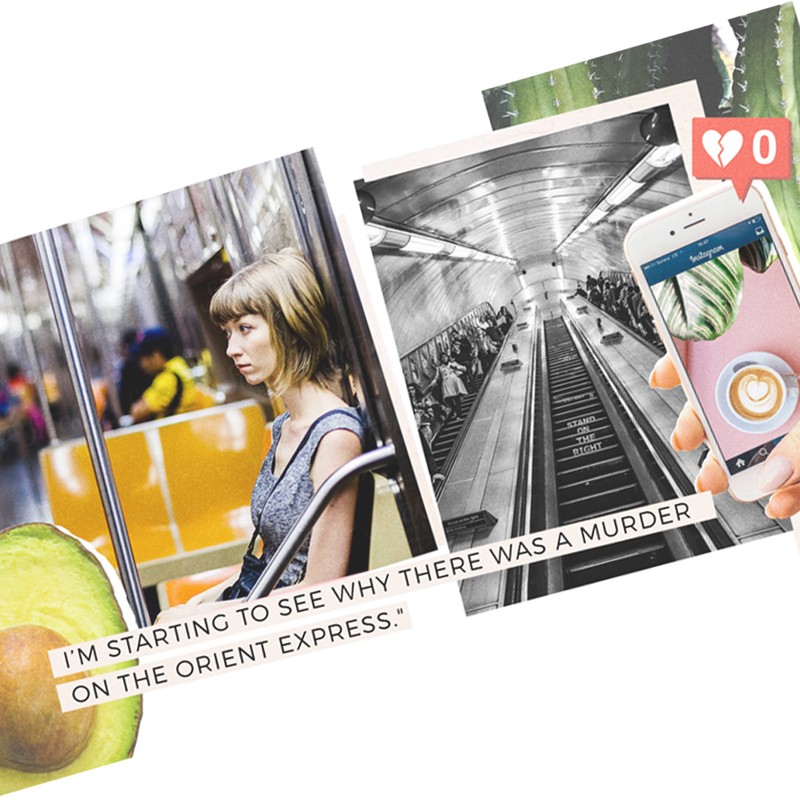#MillennialProblems: The Cost Of Commuting
This week, the trains were messed up. On Monday morning, London Waterloo came to a near-standstill because of overrunning engineering works. Waterloo proceeded to look like people trying to get into the standing section of a Beyoncé concert – plenty of running, plenty of shoving, plenty of ticket waving, and plenty of bitter disappointment when people couldn’t get to the front of the gates.
This is a sad ritual for many. Sad for so many reasons: sad because it happens so often, sad because you can practically feel all the mounting work in your office piling high onto your shoulders. Sad because you’re going to get in an hour later and thus leave an hour later. Sad because you could have had an extra hour in bed for all this faff. But mostly, sad because train fare costs so much. All of us who use public transport despair at the price of travel in the UK and the rate at which it increases. It’s like the weather – every year the cost goes up, yet every year we still talk about it in disbelief. The price increase is inevitable, but that doesn’t stop it constantly shocking us.
Come January, rail fares have the scope to rise by up to 3.2%, which means the cost of season tickets could rise by hundreds of pounds. It hurts my heart. As millennials, we have suffered the second-worst fall in earnings of any of the advanced economies in the world (Greece is first). In a report from earlier this year, it was calculated that the average hourly earnings for under-30s in Britain fell 13% between 2007 and 2014. Plus, based on how much we pay for things like rising housing costs, we are now poorer than the generation before us. This means that any inflation hits us pretty hard. We were promised rail improvements this year that have failed to materialise, yet we’re still paying the high price – literally and figuratively – for it.
What do rail bosses use the money for? Because if I know one thing, it’s that trains and tubes are disgusting. They are a hub in which germs grow. They are Dutch ovens that harbour and nurture the worst kind of smells. They are sticky. They are prisons in which you must stand patiently whilst a man playing the saxophone makes eye contact with you until you put a pound in his hat. Sometimes, when they’re particularly busy, my whole body is touching a stranger’s whole body – that isn’t right. I have sat in gum, and on a bagel, more than once. I know the pattern on train seats are specifically designed to covered dirt, but when they don’t cover dirt, just how filthy is that seat? It makes me want to take off my jeans and burn them.
Here’s what I propose we should get for January’s fare increase: hand sanitiser; a badge that says “Don’t make eye contact with me, I’m shy!” and another that says “I don’t want to buy your tissues, thank you.”; a scented candle; sunglasses; a wipe-clean sheet to put over the seat; and seats EVERYWHERE.
But in all seriousness, as travel costs continue to rise, what are we to do? It’s the ultimate millennial conundrum: in London, it doesn’t seem as though our cost of living salary increases are meeting the rate of inflation when it comes to train fare. And particularly for those who live on London’s periphery, the prices are criminal. My partner and I are looking to buy a house on the outskirts of the city, but in some places an annual season ticket reaches nearly £5,000. Do we stay in London with and cope with extortionate rent, or buy outside of London and face extortionate travel fares? Because there’s no way we could afford anywhere further in. It’s a catch-22 – and a stressful one at that. To be honest, I’m starting to see why there was a murder on the Orient Express.
DISCLAIMER: We endeavour to always credit the correct original source of every image we use. If you think a credit may be incorrect, please contact us at info@sheerluxe.com.


